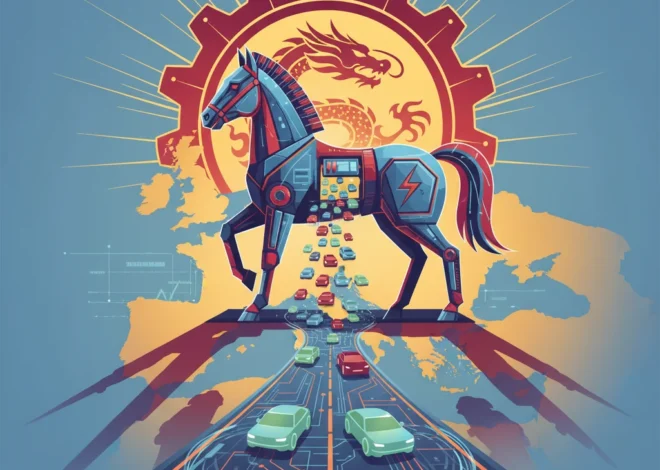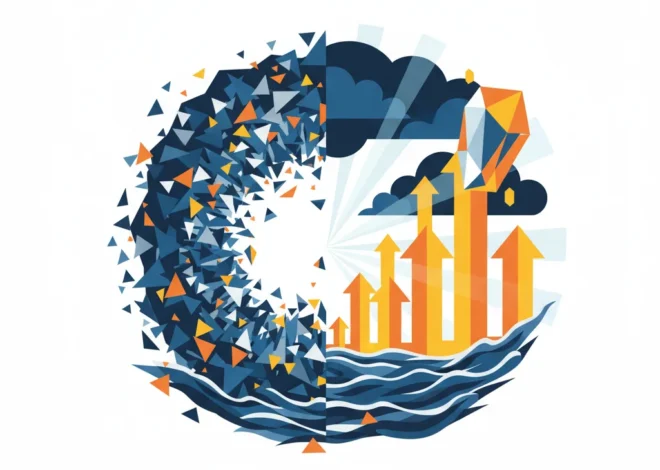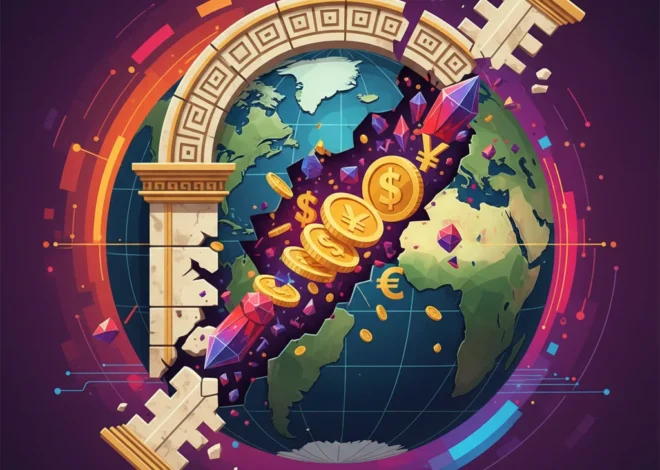
The Milei Tsunami: How Argentina’s Election Unleashed a Global Market Shockwave
In the world of global finance, political events often create ripples. But every so often, a political earthquake occurs, sending a tsunami of capital surging across international markets. The election of Javier Milei in Argentina was one such event. In the immediate aftermath, a wave of optimism washed over trading floors, with US companies striking more than $80bn worth of deals on a single Monday, and Argentina’s battered currency and government bonds experiencing a Lazarus-like revival. This wasn’t just a minor uptick; it was a full-throated roar of approval from a global stock market that had all but written off the South American nation.
But what exactly happened? How did the election of a radical, self-described “anarcho-capitalist” ignite such a firestorm of investor confidence? This post delves deep into the economic, political, and technological forces behind the market’s dramatic reaction. We will unpack the “Milei effect,” analyze the data behind the surge, and explore the high-stakes economic experiment now underway—an experiment with profound implications for international investing, the future of fintech, and the global economy.
The Pre-Election Storm: Argentina on the Brink
To understand the euphoria, one must first grasp the desperation that preceded it. Before Milei’s victory, Argentina’s economy was in a state of perpetual crisis. The nation was grappling with a toxic cocktail of economic ailments:
- Hyperinflation: Annual inflation was careening towards an eye-watering 140%, decimating savings and making basic financial planning impossible for citizens and businesses alike.
- Currency Collapse: The Argentine peso was in freefall, with a labyrinth of capital controls creating a massive gap between the official exchange rate and the “blue dollar” rate used on the street.
- Crushing Debt: The country was struggling under the weight of its international debt obligations, effectively locked out of global credit markets.
- Economic Stagnation: Decades of interventionist policies, price controls, and protectionism had stifled growth and innovation.
This was the backdrop for Javier Milei’s rise. A political outsider with a wild hairstyle and a penchant for wielding a chainsaw at rallies to symbolize his intent to cut state spending, his platform was nothing short of revolutionary. He promised to dollarize the economy, abolish the central bank, and slash government bureaucracy. To many voters, this radical “shock therapy” was a last, desperate hope. To international investors, it was the sound of a dramatic, pro-market pivot.
Beyond the Pitch: What a Football Match Teaches Investors About Geopolitical Risk
Anatomy of a Market Surge: The Numbers Behind the Optimism
The market’s reaction was not just positive; it was explosive. Investors, who had been pricing in a continuation of the status quo, rapidly recalibrated their models to account for a radically different future. The shift in sentiment was immediate and quantifiable across multiple asset classes.
Below is a summary of the immediate financial market reaction following the election results:
| Asset Class | Market Reaction & Impact |
|---|---|
| US-Listed Argentine Stocks (ADRs) | Shares of companies like state-owned energy firm YPF surged by as much as 40% in a single day, reflecting bets on privatization and deregulation. |
| Argentine Government Bonds | Distressed government bonds, which had been trading at pennies on the dollar, rallied significantly as investors priced in a higher probability of repayment under a fiscally conservative government. |
| Argentine Peso (Parallel Market) | The “blue dollar” rate, a key indicator of public confidence, strengthened significantly against the US dollar, reversing its previous downward spiral (source). |
| Global M&A Activity | The positive sentiment contributed to a risk-on mood globally, coinciding with a massive Monday for M&A that saw over $80 billion in deals announced by US companies. |
Decoding the Investor Playbook: Why the Big Bet on Milei?
The market’s enthusiastic embrace of a politically untested leader stems from a few core beliefs that now form the central thesis for investing in Argentina. This is less about Milei the man and more about the paradigm shift he represents in economics and finance.
A Clean Break from Peronism
For decades, international capital has been wary of Peronism, Argentina’s dominant political movement, which is often associated with heavy state intervention, nationalization, and currency controls. Milei’s victory was interpreted as a decisive rejection of this model. For investors, this signals a potential end to unpredictable policy shifts and a move towards a more stable, rules-based economic framework conducive to long-term investment.
The Allure of Dollarization and a Central Banking Overhaul
Milei’s most audacious proposal is to abolish the central bank and dollarize the economy. While fraught with complexity, the idea is intoxicating for anyone who has lost money to the peso’s devaluation. Dollarization would theoretically kill hyperinflation overnight, provide a stable unit of account, and force fiscal discipline by removing the government’s ability to print money to finance deficits. This is a seismic shift in monetary policy and a core reason for the renewed interest in the country’s banking and financial sectors.
Beyond the Buy Button: Why the Future of Investing Depends on a Digital Revolution
A New Frontier for Fintech and Blockchain?
Milei is not just a classical liberal economist; he is also vocally pro-technology and has spoken favorably of Bitcoin as the “return of money to its original creator: the private sector.” This libertarian-tech alignment has not gone unnoticed. A Milei-led Argentina could become a sandbox for innovation in financial technology.
- Fintech Growth: A deregulated, dollarized economy could slash the red tape that stifles fintech startups, creating opportunities in digital payments, lending, and investment platforms.
- Blockchain and Crypto Adoption: In a country with a deep-seated distrust of central banking and traditional finance, the appeal of decentralized technologies like blockchain is immense. Milei’s ideological alignment could lead to a more favorable regulatory environment for digital assets, potentially accelerating their adoption as a store of value and medium of exchange.
The Long Road Ahead: Navigating the Risks
For all the optimism, the path forward is a minefield of political, social, and economic challenges. Prudent investors and business leaders must balance the potential rewards with a clear-eyed assessment of the risks.
The primary hurdle is political. Milei’s party, La Libertad Avanza, is a minority in both houses of Argentina’s congress. Passing his radical reforms will require masterful political negotiation and compromise—skills not typically associated with chainsaw-wielding populists. Any failure to build consensus could lead to legislative paralysis, shattering market confidence as quickly as it was built.
Furthermore, the social cost of “shock therapy” cannot be understated. Drastic cuts to public spending and subsidies will inflict immediate pain on a population where over 40% live in poverty. The risk of widespread social unrest, strikes, and protests is exceptionally high, posing a significant threat to political stability and the government’s ability to implement its agenda.
Beyond the Cobblestones: Why San Miguel de Allende is a New Frontier for Finance and Investment
Conclusion: An Unprecedented Economic Experiment
Argentina has embarked on one of the most audacious and closely watched economic experiments in modern history. The election of Javier Milei has, in the short term, transformed the country from an investment pariah into a darling of the emerging markets stock market. The initial surge, fueled by the promise of fiscal sanity, deregulation, and a potential embrace of new financial technology, has been nothing short of spectacular.
However, the initial applause from the trading floor will soon give way to the hard, grinding work of political and economic reform. The coming months will be critical. The world will be watching to see if President Milei can navigate the treacherous political landscape, maintain social order, and turn his radical vision into a sustainable reality. For investors, finance professionals, and business leaders, Argentina represents a case study in real-time—a high-stakes bet on whether radical, free-market shock therapy can resurrect a failed economy. The opening act was a thriller; the rest of the play is yet to be written.


